K12Leaders is a dumb name. And we’re not changing it.
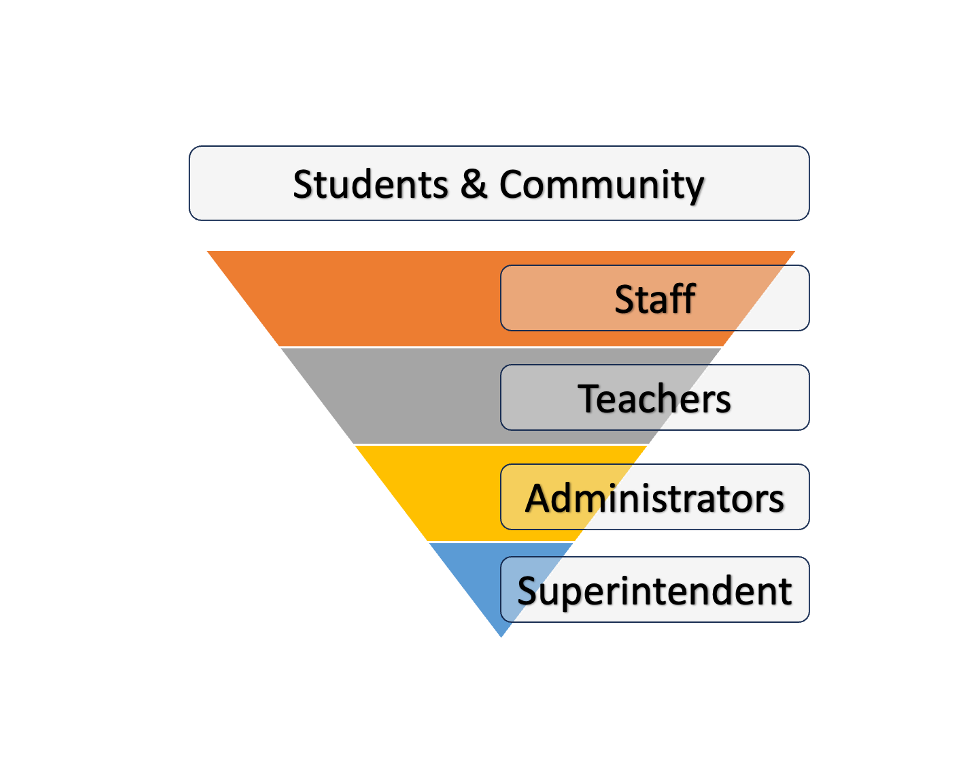
K12 Educators and the Power of Servant Leadership
Listen, we all make mistakes. And I probably make more than my fair share. I appreciate the grace everyone has in accepting that. Thank you. I am in your perpetual debt!
And it’s important to be willing to laugh at our mistakes… I do that frequently, thinking about the name “K12Leaders.”
One of the questions I get repeatedly about this network we’re building goes something like this: “K12Leaders? What a great idea! I guess it’s not for me though… I’m only a… teacher/instructional technologist/librarian/tech director/school counselor/nutritionist/nurse/facilities director, etc…”
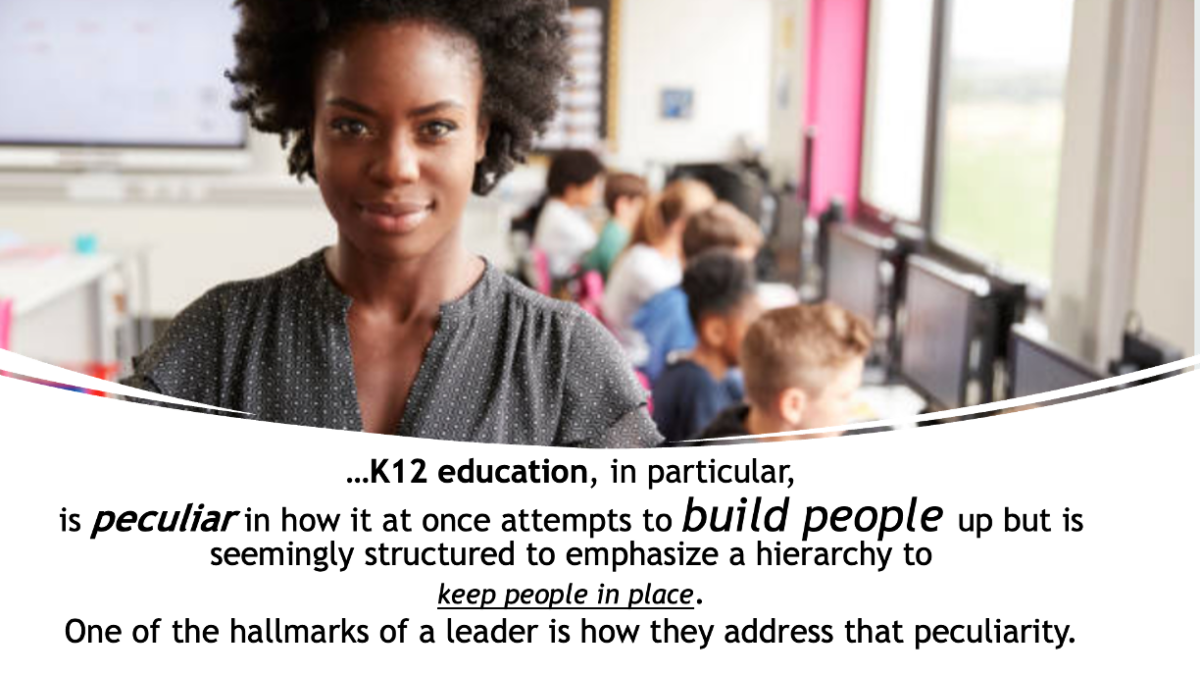
Education, and K12 education in particular, is peculiar in how it at once attempts to build people up but is seemingly structured to emphasize a hierarchy to keep people in place. One of the hallmarks of a leader is how they address that peculiarity. We saw some evidence of this in a survey we conducted in 2022 on teacher satisfaction.
It may be that at times we can’t see what is so close to us… that our school houses are filled to the brim with leaders. Our teachers, nutritionists, custodians, receptionists, and even our superintendents- We’ve structured our schools around the understanding that every functional area in a school requires real ownership and responsibility.
But in the realm of K12, there is a unique humility that characterizes educators and staff at every level. While K12Leaders may be a “dumb” name for this community, take for a moment how often we also refer to service. We are here for those who serve K12 education and who are looking for ways to improve.
Humility and Servant Leadership in K12 Education
The power of servant leadership in education is not acknowledged often enough. It is the very essence of our community. Educators’ humility runs deep. But that humility’s essence is often twisted by both bureaucracy and social stigmas. We’ve all suffered the boorish “joke” at one party or another about “how those who can’t do…” well. You know. But K12Leaders embraces the idea of servant leadership in every corner of the school house.
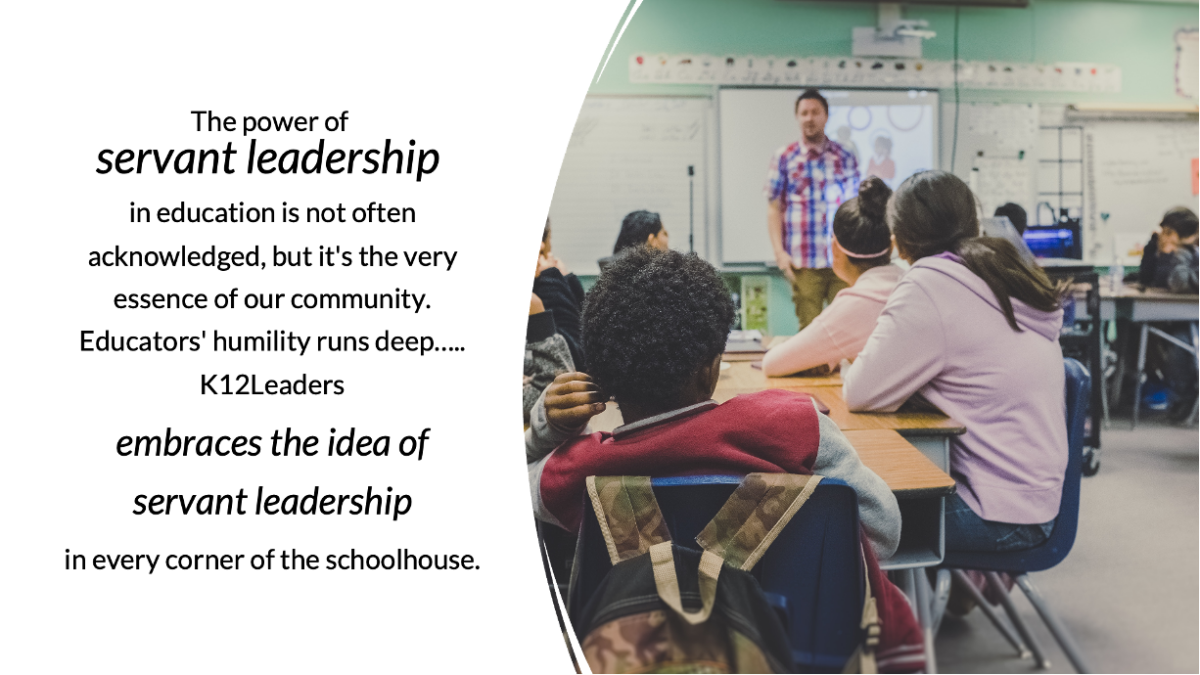
Educators, too, from teachers to support staff, often downplay their roles as leaders. This humility is not misplaced but rather a testament to the selfless dedication of those who serve their students, schools, and communities. In the words of Robert K. Greenleaf, the founder of the servant leadership movement, “The servant-leader is servant first… It begins with the natural feeling that one wants to serve, to serve first.”
I’m not sure when I first came across the idea of the inverted hierarchy. It may have been the first time I read Servant Leadership. But the concept certainly stuck with me… It starts with the understanding that the most important role in an organization is that of the customer or end-user. In a company, that’s generally the customer. In K12, that’s the student and the community, as suggested by Jethro Jones.
If we take a Student First model of our schools, then it only follows that our teachers are next in-line as they are closest to the Student. The thought of “only” being a teacher can he heard for what it is: misplaced modesty… or a symptom of someone who doesn’t understand a teacher’s true value.
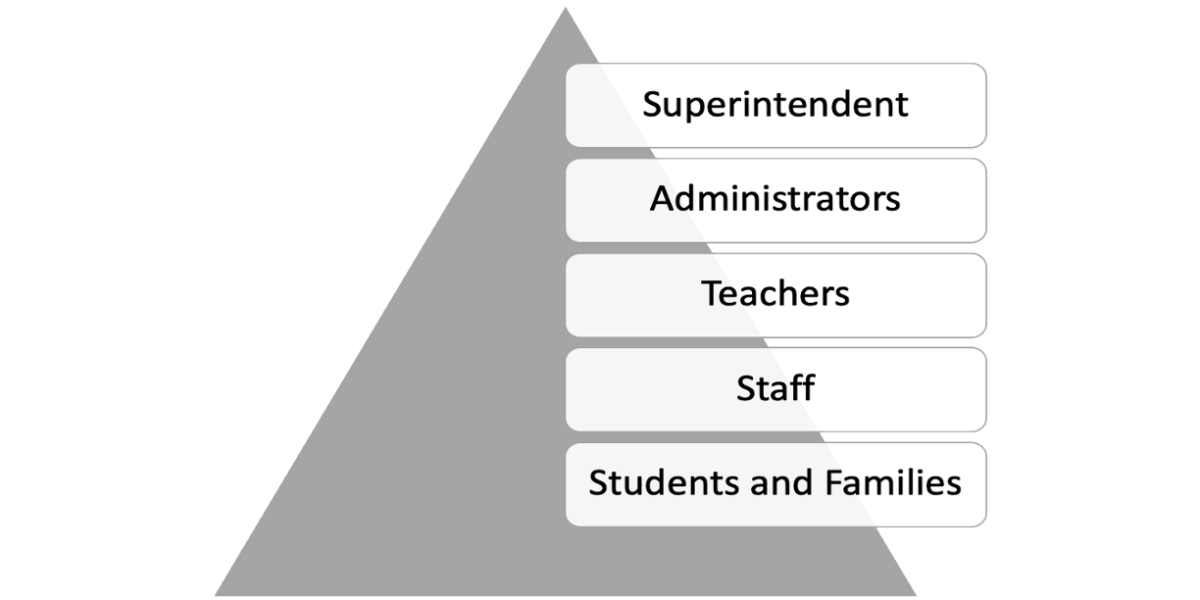

At the heart of servant leadership in education is instructional leadership. It recognizes that educators are not just conveyors of knowledge but also shepherds of growth. By focusing on the needs of students, teachers become servant leaders, providing the guidance and support essential for student success.
K12Leaders acknowledges and celebrates this aspect of leadership. By amplifying educators’ voices and acknowledging their servant leadership roles, the community embraces the humility that defines educational professionals. It promotes the idea that leadership is not about titles but about serving the greater good of the community… the school…the student.
In fact, when I’m asked that question “is there a place for me on K12Leaders” there is only one question I ask. And that is, “Do you think it’s your responsibility to look outside of your classroom, office, or school to find ideas for what you could be doing better?” That’s it. And, of course just about everyone I talk to at conferences is already doing exactly that.
Now there are other aspects of leadership that extend beyond service, and we’ll touch on those in another post. But let’s take this chance to say:
We’re not changing our name.
Recommend0 recommendationsPublished in Leadership Voices, Newsletter



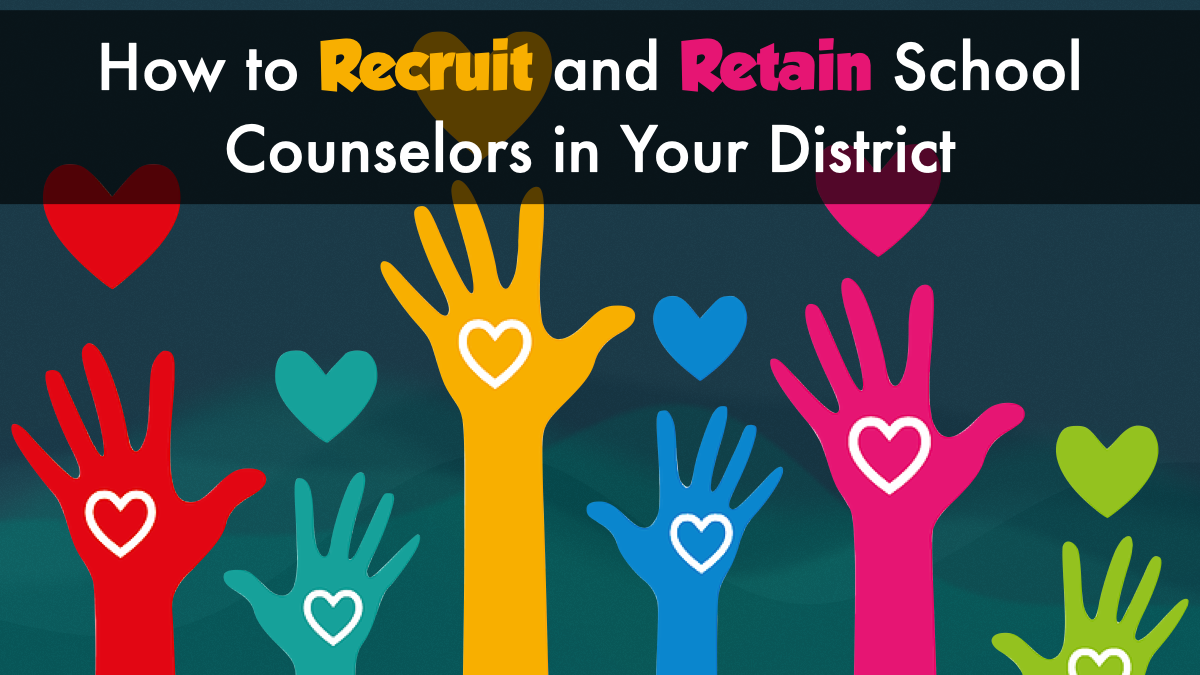



I am loving this article, Michael. Have this conversation with anyone in education… “You know… anyone in education can be a leader…” and before you finish the statement, the person you are chatting with is nodding in agreement. Yet, that is not the culture or the behavior that matches the sentiment. We don’t refer to ourselves as leaders…. I’m “just a…..” or “that’s above my pay grade”. We feel as if to become leaders, we have to leave the classroom.
We know we can lead from the classroom. That the title of Director of Administrator does NOT have to be on our business card to be a leader, yet we often fall back on that.
I am waiting to see a day where K12Leaders are seen as those who are leading EDUCATION, not as people who are leading Educators. There’s a huge difference.
I can’t wait for your follow up posts!
Thanks Suzy!